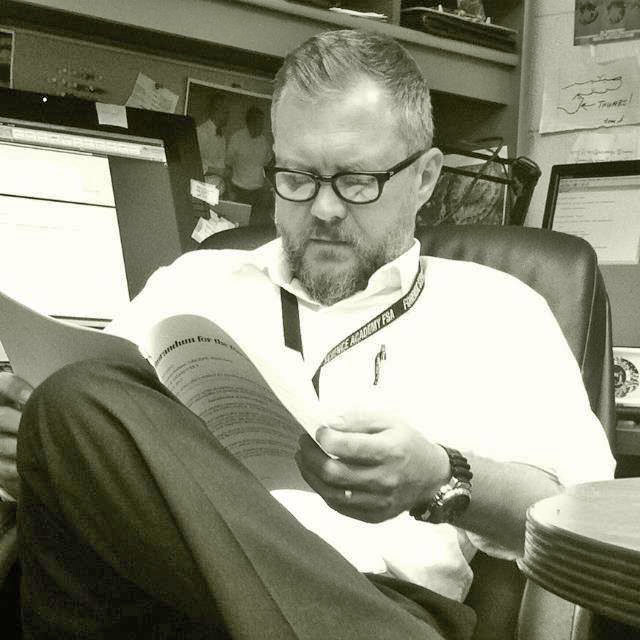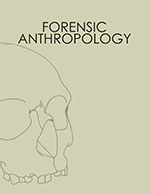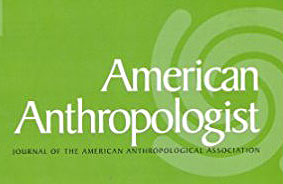 Dr. Joe Hefner joined the Department of Anthropology in the Fall semester of 2014 as an assistant professor in forensic anthropology. He currently teaches graduate level Human Osteology and Multivariate Statistical Analysis along with undergraduate Introduction to Physical Anthropology, Hominid Fossils and Time, Space and Change. Previously, Dr. Hefner worked as a contract archaeologist throughout the Southeastern United States and then at Mercyhurst College after completing his PhD in 2007 from the University of Florida.
Dr. Joe Hefner joined the Department of Anthropology in the Fall semester of 2014 as an assistant professor in forensic anthropology. He currently teaches graduate level Human Osteology and Multivariate Statistical Analysis along with undergraduate Introduction to Physical Anthropology, Hominid Fossils and Time, Space and Change. Previously, Dr. Hefner worked as a contract archaeologist throughout the Southeastern United States and then at Mercyhurst College after completing his PhD in 2007 from the University of Florida.
Joe reports stumbling into anthropology inadvertently during his undergraduate studies at Western Carolina University. As a philosophy/art/psychology major, he took an Introduction to Cultural Anthropology course and became hooked, deciding to change his major and declare social/cultural anthropology. Eventually, he found himself enrolled in archaeological field school and the rest is history as they say. From that moment on, Joe knew he wanted to do something with archaeology for the rest of his life. A few years after this, he discovered forensic anthropology and headed to Florida. As a graduate student, the young Dr. Hefner struggled to understand how forensic anthropologists were estimating ancestry. Prior to his latest research, estimating ancestry was an experience-driven, subjective approach that did not sit well with him. First, Joe felt he was not patient enough to become an expert and second, he believes that subjectivity should have no place in the field of forensic anthropology.
Dr. Hefner’s work investigates cranial morphology (cranial macromorphoscopic traits) as an indicator of geographic origin (i.e., ancestry in forensic anthropology). He examines modern individuals housed in skeletal collections around the world, collecting data on slight variations in the skull to estimate where these individuals originate from geographically. Because of the nature of estimation and classification in forensic anthropology, Dr. Hefner also works with statistical modeling. Traditionally that has included standard methods like discriminant function analysis, but computing power today has expanded new research horizons. Machine learning models are very popular now and, since he works with categorical data, many of those methods are more appropriate than traditional models that require a normal distribution.
Joe’s favorite part of his research is his love for data analysis and coming up with novel approaches to old questions. These reasons are why he is constantly trying to develop better analytical methods for classification analysis. Forensic anthropologists have been using many of the same methods since the fields inception. While these methods have been tested and hold true, Dr. Hefner wants to break out of those familiar paradigms. This means reading a lot of the literature from numerical ecology and machine learning.
Dr. Hefner enjoys the department and his colleagues. Dr. Hefner also enjoys the relationships he’s established with his graduate students, which allow them to work well together and “crank out” solid research. Joe hopes that the approaches he has developed have some staying power within the field and that someday, a young, new scholar will approach him at a conference and make it their goal “to spend their entire career trying to prove me wrong.”
Aside from being a prolific publishing scholar and professor, Joe Hefner is also an avid reader and enjoys playing chess whenever he can, generally while also enjoying a nice small-batch bourbon. He has a new book coming out in August of 2018 entitled Atlas of Human Cranial Macromorphoscopic Traits from Elsevier, Academic Press. His newest publication, “The Macromorphoscopic Databank” should be out soon in the American Journal of Physical Anthropology. Dr. Hefner is collaborating on a variety of projects with colleagues the world over and working on tenure.
Click here to read the full newsletter.

 Congratulations to Marcella Omans for her
Congratulations to Marcella Omans for her 




